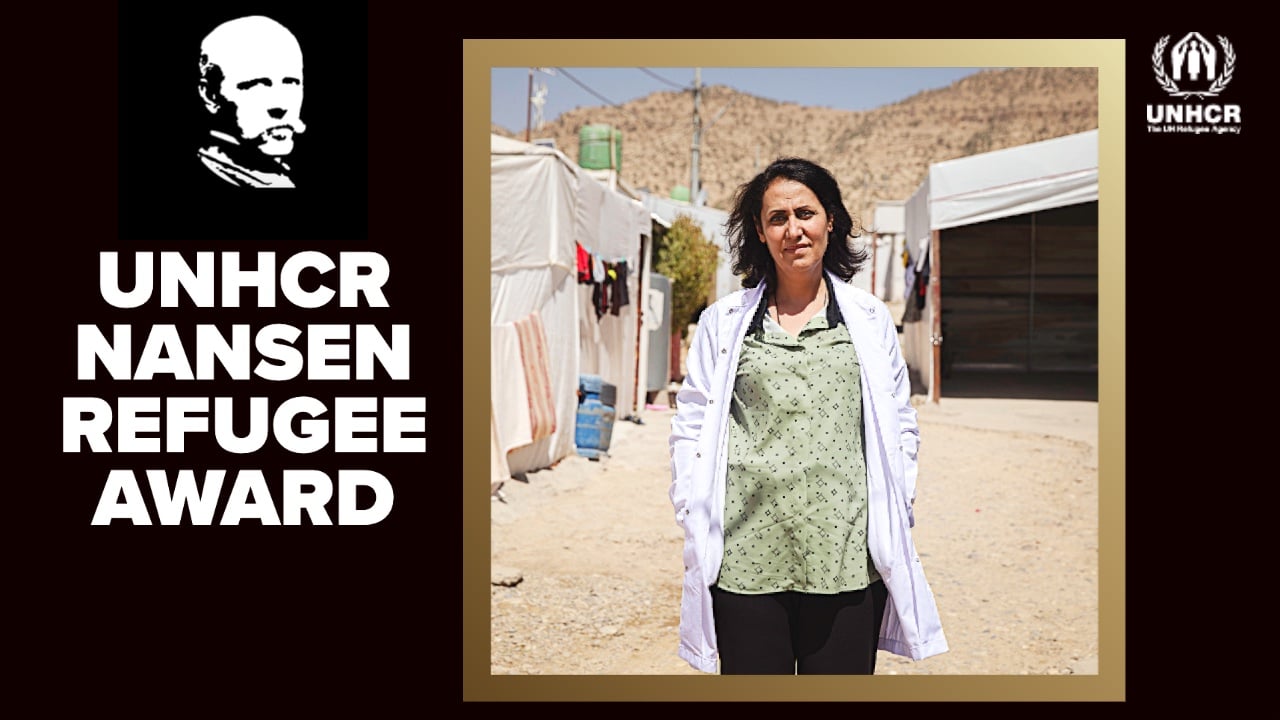Iraq displacement: Generous host countries left in the lurch
Iraq displacement: Generous host countries left in the lurch
Despite all of the expressions of support and concern from governments during the UNHCR-sponsored Iraq displacement conference here in Geneva in April, the two countries caring for the biggest proportion of Iraqi refugees - Syria and Jordan - have still received next to nothing in bilateral help from the world community.
Syria and Jordan, with an estimated 2 million Iraqi refugees between them, are struggling to cope. Syria continues to receive about 2,000 Iraqis a day, and about 30,000 a month end up staying. The growing refugee population and the communities that host them are facing enormous hardships that will only get worse if the international community doesn't put its money where its mouth is.
As we emphasized in April, UNHCR's $60 million programme for Iraqi refugees and displaced - soon to be raised to more than $100 million - is just a drop in the ocean compared to the huge needs in the region. While contributions to UNHCR have been generous, now totalling some $70 million with another $10 million pledged or in the pipeline, we cannot do everything alone. We stressed then and we say it again - donors must provide direct bilateral support to these host countries whose schools, hospitals, public services and infrastructure are seriously overstretched because of the presence of millions of Iraqis they have so generously welcomed.
In Syria, for example, only 32,000 of the hundreds of thousands of Iraqi refugee children in the country are actually in school. Syria, with 1.4 million Iraqis, is the only country in the region that allows free public school access for all Iraqi children. But there simply isn't enough space to take them all in. To try to cope, Syrian education officials have been forced to convert scores of public schools back to the double-shift system that the country had expected under a long-term national development plan to end by 2010. A whole generation of Iraqi children is in danger of missing out on an education. We are working with UNICEF on programmes to have at least 150,000 Iraqi children in school in Syria, Jordan and Lebanon by the end of 2007. But the task of providing more classrooms, teachers, educational materials and other support must be done in coordination with the Syrian education ministry - and it is not getting the help it needs.
The health infrastructure is also under severe strain and thousands of Iraqis are suffering because they can't get proper help. Every week, we're seeing sick and maimed Iraqis - including many burn and trauma victims - arriving in Syria in search of medical help. UNHCR has set up three primary care medical posts and we're building two more. But it's not enough. We're currently referring 10,000 Iraqis a month to Syrian doctors and health care facilities, including 3,000 to hospitals. About 15 percent of those 3,000 are in urgent need of serious medical help. In the last month alone, we provided prostheses to 50 Iraqi children. Of the more than 57,000 Iraqis we've registered in Syria since the beginning of this year, more than 12,000 were victims of torture. You can imagine the needs.
It is unconscionable that generous host countries be left on their own to deal with such a huge crisis. We strongly urge governments to step forward now to support them in dealing with this situation and renew our call for international solidarity and burden sharing.
On another matter, you know we have been appealing over the past few weeks for the urgent medical evacuation of a dozen Palestinian children from Baghdad and from the makeshift Al-Waleed camp on the Iraq side of the Syrian border. These children suffer from serious and life-threatening medical problems. While there has been interest in the children from various European countries and from some individuals, so far we have nothing concrete. If these children are not evacuated soon, some may die or be handicapped for life. They need help now.








